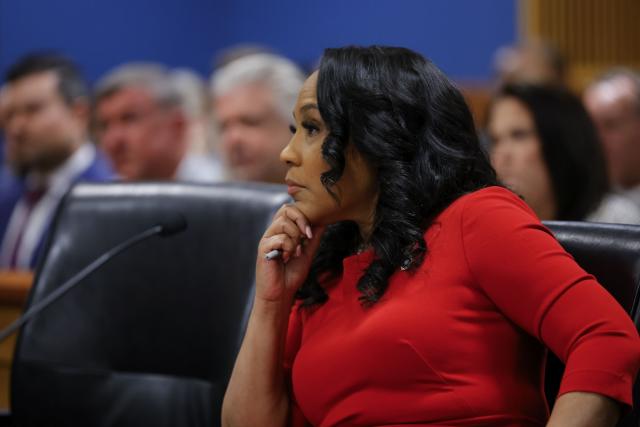Federal judge temporarily blocks provisions of Georgia's election reform law
A federal judge in Georgia has temporarily halted certain provisions of the state's new voting law.
In a recent development, the judge has blocked the implementation of specific parts of the law. This decision has garnered significant attention from various stakeholders, as Fox News reported.
Provision on food and water distribution paused
U.S. District Judge J.P. Boulee has temporarily blocked enforcement of a provision that prohibited individuals from distributing food and water to voters waiting in line on election day.
However, the judge has allowed the enforcement of penalties against those who provide such amenities if they are within 150 feet of the voting building. The judge has paused the enforcement of this ban in other areas within 25 feet of a voter in line.
Judge Boulee highlighted the lack of clear boundaries for the "Supplemental Zone" compared to the "Buffer Zone's" 150-foot radius.
He mentioned that the law restricts organizations from assisting voters in line if they are within 25 feet of a voter, even if they are outside the 150-foot Buffer Zone.
Changes to absentee ballot requirements
Another significant decision by Judge Boulee was to block a part of the law that required voters to mention their date of birth on the outer envelopes of absentee ballots.
The judge stated that the state failed to provide evidence that absentee ballots rejected due to non-compliance with the birthdate requirement were fraudulent.
However, the judge dismissed claims suggesting that the law denies voters with disabilities meaningful access to absentee voting.
Background of the Election Integrity Act
The Election Integrity Act was introduced and signed into law by Republican Gov. Brian Kemp in the spring of 2021.
The law has several provisions, including the requirement of identification to vote, extension of the early voting period, and assurance of a ballot drop box in every county.
This law, aimed at strengthening voting rules, was introduced shortly after the 2020 election.
It faced criticism from Democrats and major corporations like Major League Baseball and Coca-Cola. The MLB even shifted its 2021 All-Star Game from Atlanta to Denver as a response to this law.
Critics and supporters voice their opinions
Critics, including President Joe Biden and former Georgia gubernatorial candidate Stacey Abrams, believe the law restricts voting access, especially for people of color.
However, the state witnessed a record turnout in the primary and general elections in 2022, leading Republicans to argue that the criticism was unwarranted.
Several civil rights and voting rights groups have challenged the law in court.
Reactions to the judge's ruling
Following Judge Boulee's mixed ruling, both sides claimed victory.
John Cusick from the NAACP Legal Defense Fund viewed the decisions as crucial wins for democracy and safeguarding access to voting in Georgia.
On the other hand, Georgia Secretary of State Brad Raffensperger expressed satisfaction that the court upheld Georgia's rules against ballot harvesting and securing absentee ballot drop boxes.
He emphasized that Georgia's voting system remains secure and accessible to all, including those with disabilities.
Similar rulings in other states
A related ruling came from Texas, where U.S. District Judge Xavier Rodriguez struck down a provision of Texas' law.
This provision required mail voters to provide the same identification number they used during registration. The judge deemed this requirement a violation of the U.S. Civil Rights Act.
The U.S. Department of Justice challenged this provision, leading to a significant increase in mail ballot rejections after the law's enactment in September 2021.
Conclusion
- A federal judge in Georgia has temporarily blocked specific provisions of the state's voting law.
- The judge paused the ban on distributing food and water to voters in line but allowed penalties within 150 feet of the voting building.
- The requirement for voters to mention their date of birth on absentee ballots was also blocked.
- The Election Integrity Act, introduced in 2021, has faced both criticism and support.
- Both critics and supporters have voiced their opinions following the judge's mixed ruling.
- Similar rulings on voting laws have been observed in other states like Texas.






